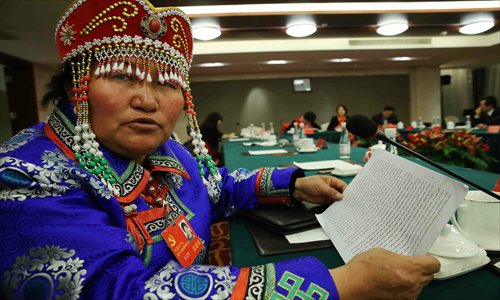Cultural reform to get business update

Officials in charge of China's cultural sector Sunday vowed to continue the sector's reform by exposing State-owned establishments to market mechanisms to boost their competitiveness, in an all-out strategy to strengthen the country's cultural power.
Sun Zhijun, deputy head of the Publicity Department of the Communist Party of China (CPC) Central Committee, told a press conference that he is confident the path of socialist cultural development with Chinese characteristics would grow wider under the guidance of the ongoing 18th National Congress of the CPC.
Sun said that the CPC had launched cultural reforms to better adapt to the improving socialist market economy system, meet the public's growing spiritual and cultural demands and deal with new challenges brought by economic globalization and China's opening-up to the outside world.
These reforms were mentioned in General Secretary of the CPC Central Committee Hu Jintao's report to the congress last week, in which he said the key to a socialist cultural power was the nation's cultural and creative vitality.
Zhang Yiwu, a professor of Chinese literature at Peking University, told the Global Times Sunday that since 2011, cultural development has become increasingly important to China's overall strategy.
Cultural reform has been heralded by a campaign to turn State-owned and for-profit cultural establishments into full-fledged businesses.
Government statistics show a wide range of reform programs had been conducted nationwide by September 10 2012. Hundreds of cultural establishments were converted into fully profit-oriented businesses, including 528 publishing houses and 850 movie studios, distributing companies or cinemas. In addition, the vast majority of art troupes or theaters as well as non current-affairs newspapers and magazines have also turned into for-profit companies.
According to Sun, more than 6,900 legal entities in the profit-making cultural sector have been nullified, and nearly 300,000 manning quotas of cultural establishments cancelled altogether.
Zhang said such reforms activated the sector with market mechanism and injected vitality to cultural establishments without government backing.
During Sunday's press conference, Zhao Shaohua, vice minister of culture, acknowledged that most State-owned performing art troupes or theaters have a poor foundation, heavy burdens or lack market experience.
Though some cultural entities encountered great difficulties after being exposed to market competition, quite a number of them weathered the difficult situations.
In early 2011, eight publishing houses under the China International Publishing Group (CIPG), an institution directly under the CPC Central Committee, were restructured into independent business entities.
Huang Youyi, deputy director-general and editor-in-chief of the CIPG, told the Global Times Sunday that these publishing houses now have more market awareness and are better able to meet consumer demands.
"Despite the downturn in the book market, all of them have seen their sales rise," he said.
One of the eight publishing houses, which mainly releases foreign-language books, did initially encounter some problems due to limited demand. Huang said it now takes both domestic and foreign markets into consideration when planning its publication calendar.
While giving the publishing houses more management independence, Huang pointed out that the CIPG does still support them financially if they fall on hard times. "For the content of publications, we still keep a strict eye. Sometimes, even stricter," said Huang.
This is in line with the authorities' guidance as Sun stressed the importance of the positive role played by the cultural industry, asking businesses and institutions within it to shoulder social responsibilities, uphold the best ethics and safeguard social unity and harmony.
Meanwhile, responding to a question about China's cultural influence overseas, Zhao admitted that there was a "cultural deficit" in exchanges, vowing that China would make further efforts to introduce its traditional and contemporary culture to the world.
"In addition to the classic and elegant culture, we should also place great importance on the promotion of grass-roots culture to show a real China," Zhang suggested.
More in special coverage:
